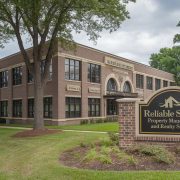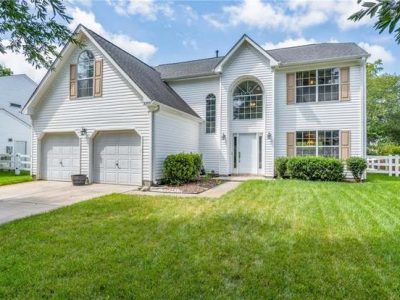The commercial real estate (CRE) industry thrives on relationships, deal flow, and
meticulous property management. However, managing vast amounts of data, tracking
complex transactions, and nurturing client connections can become overwhelming withoutdated systems. This is where the power of a robust Customer Relationship
Management (CRM) platform like Salesforce comes into play. As a seasoned
Salesforce consultant, I've seen firsthand how strategically implementing Salesforce can revolutionize Commerical Real Estate operations, driving efficiency and fostering significant growth. This post will guide you through leveraging Salesforce to optimize your CRE business, regardless of your current familiarity with the platform.
Understanding the Unique Needs of Commercial Real Estate
Commercial real estate markets present a different level of complexity than
residential real estate markets.Multi-stakeholder transactions have long due diligence windows, complex leasestructures, and property management for wide-ranging property portfolios over the long haul. The people in space brokers, developers, and property managersneed tools to do this well It means tracking properties with specific characteristics (e.g., square footage, zoning, occupancy), customer relationships with tenants, investors, and vendors, and owning the entire deal lifecycle from lead to when the deal is done and closed.
The Power of Salesforce for Commerical Real Estate:
ACentralized HubSalesforce provides a flexible and scalable platform that can be customized to fit thecommercial real estate industry's needs. Instead of independent spreadsheets and disconnected systems, Salesforce has everything you need in a centralized hub tomanage the most critical parts of your business:
Relationship Intelligence:
Craft & Nurture Client facing (landlords, tenants,
investors) and other Relationship Participants. In a centralized place, you can
track interactions and communications history related to each client account and
critical contact information.
Property Management:
Aggregating and administering property listings with
property-level information, e.g., Location, sqft, amenities, lease terms, and
availability on markets with associated docs. Linking properties to relevant
contacts and monitoring the status of the property in the leasing/sale process.
Deal Management:
Automate the entire deal cycle, from lead to close,
negotiation, and beyond the party's post-transaction monitoring. Track key stages of every deal, parties involved, dates, and docs related to the agreement.
Lead Management:
Record and qualify leads from different sources, assign
them to brokers in the organization, and follow up on their progress through the
sales funnel.
Reporting and Analytics:
Build customized reports and dashboards to
analyze your business's performance more deeply. Monitor your team's deal count, lease rates, property performance, and overall performance.
Key Salesforce Features for Commercial Real Estate Professionals
Salesforce has several Commerical Real Estate aligned features that can be especially
advantageous for the Commerical Real Estate industry:
Accounts and Contacts:
Accounts and contacts are the things everySalesforce system has that you need to manage companies (accounts) andtheir contact people. So, for commercial real Estate, an "Account" mightbeProperty Management Firms or Investment Groups, and the "Contacts" wouldbe the Individual Brokers/Tenants.
Opportunities:
To manage potential deals (sales or leases) in stages from
the funnel so you always have a clear view of who's in the pipeline. You can
tweak the stages to be consistent with your deal process.
Leads:
There are sellers (or properties) who may not have opportunities yet.
This ensures that no potential business is missed.
Marketing Performance:
Dashboards for Tracking engagement withcampaigns across channels (Online ad spend, email campaigns, and industryevents), along with drill-down leads & deals by the campaign.
Reports and Dashboards:
We all use some sort of reporting or dashboard
to visualize our numbers for KPIs (vacancy rates, average deal size, and lead
conversion percentages).
Salesforce Mobile App:
The mobile app provides access to the most in-
demand information, so you do not miss out on any touch points. It is always
connected and reachable wherever you are.
Custom Objects and Fields:
Salesforce's flexible approach allows you to
create an object/field for commercial real Estate specific but not needed in other
industries. For example, you could create a "Properties" object with square footage, property type (office, retail, industrial), zoning, and current tenants.
Implementing Salesforce for Your Commerical Real Estate Business: A Step-by-Step Approach
Strategic execution is about the only way to get Salesforce right. So here is a simple
guideline:
Understand Your Pain and What You Want Results fromSalesforce to Be SMART onGoals:
Pinpoint Your Current Pain Pointsand Expose What You Will Realize Once on Salesforce. Think about theprocesses you want to simplify. What data do you need to monitor better?
Design the Roll-out:
Identify which features of Salesforce and possiblyAppExchange solutions (Third-party Apps that extend the capabilities ofSalesforce) you will implement to cater to how you need. You can leverage aSalesforce consultant (preferably certified in commercial real Estate) to help.
Tweaks Salesforce:
Sharpen Salesforce to fit your commercial real Estate processes with custom objects, fields, workflows, and reports. This could meansetting up different record types for specific classes of properties or deal structures.
Data Migration:
Migrate your data (contacts, properties, deals) correctlyinto Salesforce to be right the first time. This is super important for a smooth transition.
User Training:
Offer your staff full training on Salesforce and how it'ssupposed to be used. User adoption is the key to unlocking the most value from the platform.
Optimization Over Time:
Salesforce is not " set and simple." Please keep track of its use, feedback with your team about it, and what needs tweaking to
make it operate smoothly and meet your ever-changing needs.
Embracing the Future of Commerical Real Estate with Salesforce
Salesforce offers a robust foundation for commercial real estate businesses to thrive intoday's competitive landscape. By centralizing data, streamlining processes, andfostering stronger relationships, you can unlock new levels of efficiency, productivity,and, ultimately, growth. As an expert in this field, I encourage Commerical Real Estate professionals to explore Salesforce's transformative potential and take the first steptoward a more connected and prosperous future.
















Comments